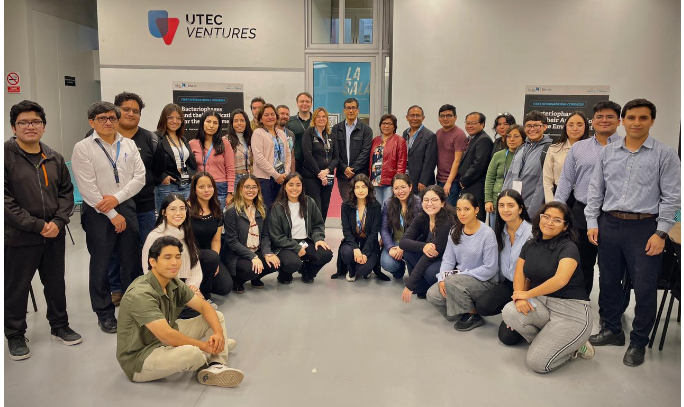

On 14-16 August this year, the first international congress of bacteriophages FICBAE 2023 was held, with the support of PROCIENCIA and UTEC University. The event brought together world-renowned experts such as Dr. Angela Belcher at MIT (USA). Likewise, national and Latin American specialists (Argentina, Mexico and Chile) met to discuss the potential use of this technology in the field of food, health and environment.
The FICBAE 2023 congress was held at the facilities of the UTEC University and in its virtual format allowed us to interact face-to-face and remotely in plenary sessions, discussion panels, and poster displays with scientific works. Something very important for the dissemination of the use of bacteriophages in our environment, was the implementation of training workshops at the congress given to national researchers and students. These workshops were led by MIT researchers, experts in this bioengineering tool.
Being the natural predatory bacteriophages of bacteria, it became clear from the event that researchers are taking advantage of them to provide solutions in alternatives to antibiotics and chemical pesticides, alternatives in personalized medicine to treat each patient and their bacterial infection. Finally, its usefulness as novel nanomaterials, which during the FICBAE 2023 event was proposed for use in the removal of heavy metals in the environment using bacteriophage-based nanogels.
We are sure that this will not be the only edition of an event in which we can explore the applications of bacteriophages for our society. Future events will seek to further promote research technologies for the national and regional scientific community on the use of bacteriophages for bioengineering.